Good storytelling in games
By just_nonplussed 39 Comments
Just thought I would write a little bit about some video games that I think have effective ways of immersing me as a player into the story. It's not a huge essay or anything, but I felt a need to mention these games.
Mirror's Edge
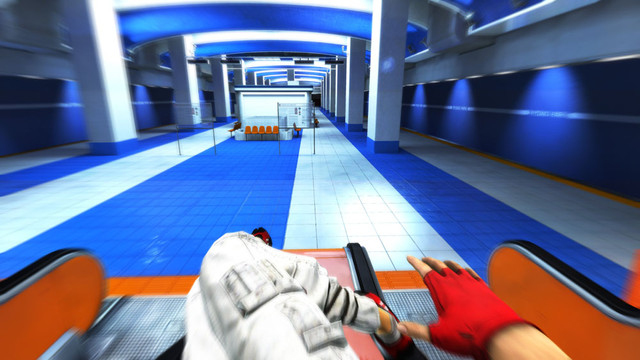
Firstly, there's just something about the first-person viewpoint that really puts me into the game experience. Maybe it is because life is played in first-person. :-) Not all games that are first-person naturally succeed at this though. The character model of Faith in Mirror's Edge is built well enough that it feels like she is all there, even if you don't see most of her. Running feels quite natural and the connection between player and character feels solid. Mostly what I like about ME is how engaged in the story you are, right from the begining. There are some weird guys after you and you are running. That's all there is too it, but the fear of getting caught and shot is so strong that I can't get past the fourth area. I find it a terrifying experience. Mirror's Edge is great because it manages pretty successfully to dissolve any barrier between its game and story elements. It's a shame then that it's too difficult (And fiddly, control-wise) for me to play.
Metroid: Other M
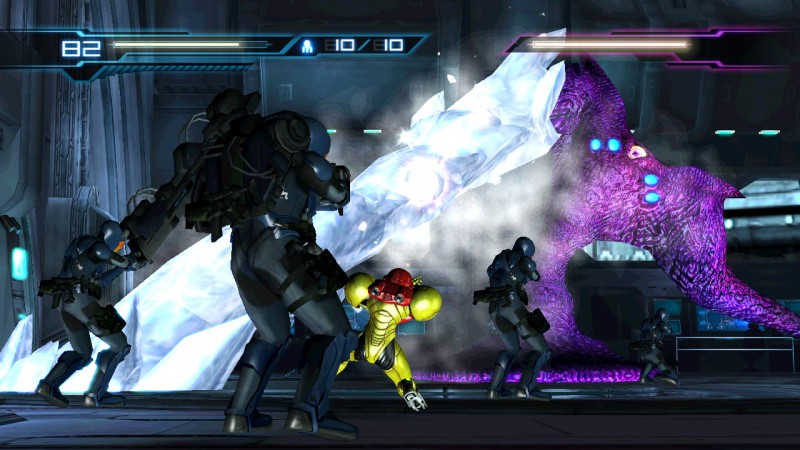
I know this game got a lot of complaints from gamers about the content of its story, and the interface/controls, um, and the level design, but I really think it does a fantastic job at immersing me into the character of samus and into the world she is in. Other M is so dramatic and intense that I felt things were happening around me in real-time. I guess this is mostly direction, which it is great at. What makes the direction stick is the character of Adam who gives you orders from his computer room base, and authorizes 'updates' to your power suit. I felt like there was a clear dialogue between me and the game; this was a mission of restraint and surgical observation. You're clearly in a dangerous situation and the game communicates that immediacy very well. What I love is that this is Metroid game that dares to be different, and plays on Samus/the player's history of being a sort of rogue agent that can go anywhere and has little to no responsibility. Funny how most gamers simply threw their toys out of the pram.
Bioshock
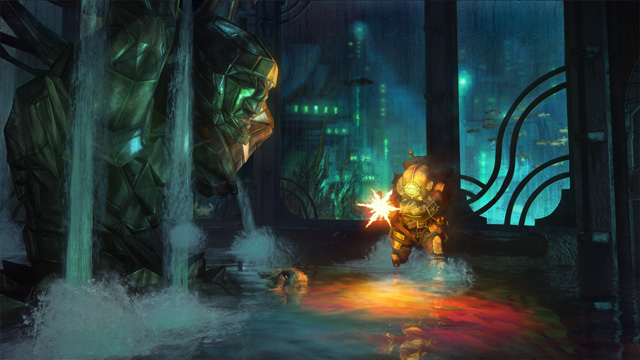
I'm not going to say much about this, but the world design is just fantastic. The environment tells me as the player, so much. The audio logs were a fantastic way of conveying background information that felt part of the world. The twist in the story at the end was amazing, not just because of the twist itself but how I as a player was implicated - without feeling as if there was any distinction between myself and the character. It's just a shame that I found the moral choice system to be flawed and uncompelling.
Noby Noby Boy
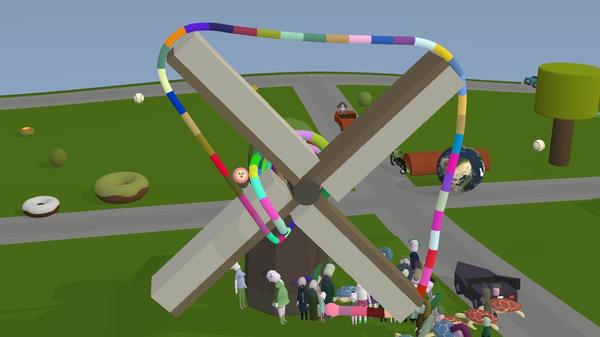
This is a brilliant little sandbox world, and my favourite to date. I felt really connected to BOY, a massive wiggly worm. BOY appears to be an alien life form from far far away, and you basically spend most of the game invading other planets and going on massive trolling sessions in a quest to derail civilization. I just spent ages exploring and testing things out in the world.
Animal Crossing
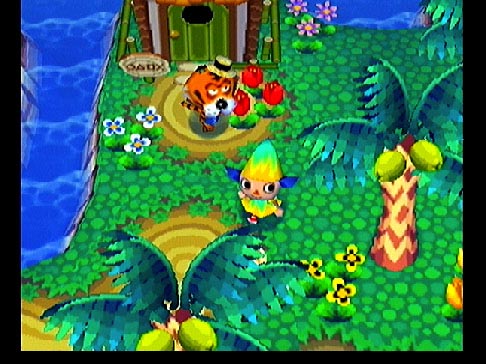
It's a simple set-up. You're moving away to a new life and everything is going to be fine and dandy, until you actually get there and realize you're in a lot of debt and have to run around doing chores for people. However, the main reason I love this game is how much depth there is to customizing your house. I'm amazed at how people have been able to make their villages feel so individual. This is the player creating their own world, and contrasts with a game like Mirror's Edge where you take on the role of a character.
So those are just a variety of games that I think successfully merged story with gameplay in a way I felt comfortable with and enjoyed.

39 Comments